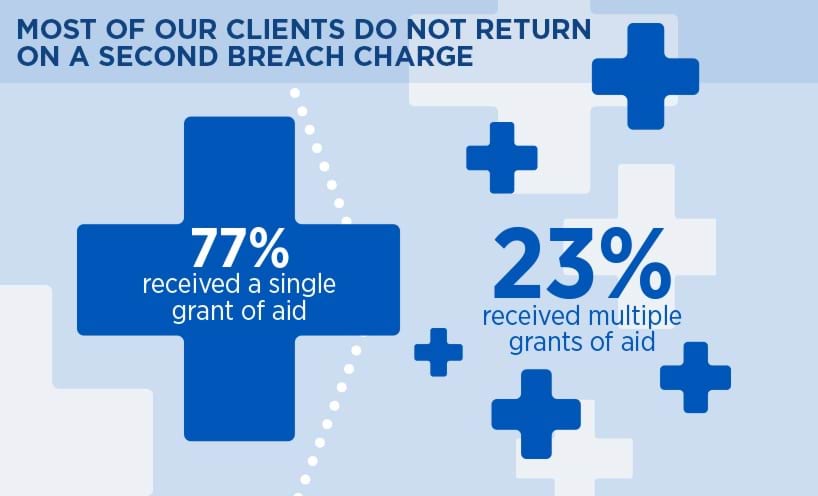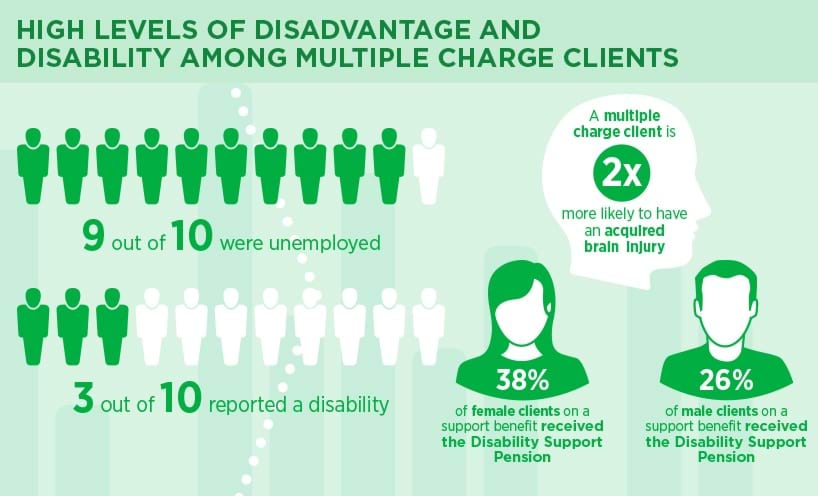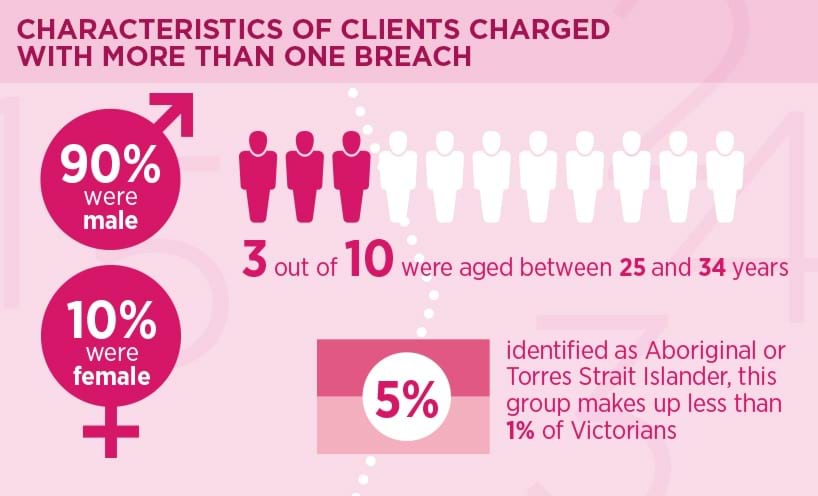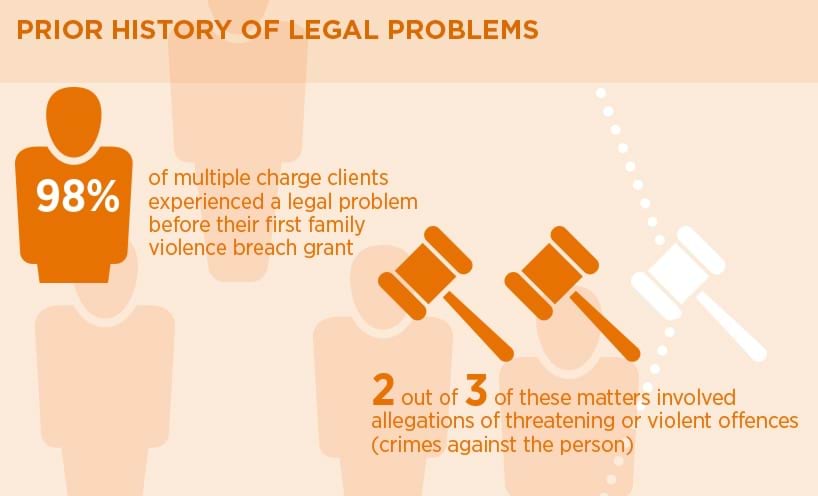Breaches of family violence intervention orders are one of the fastest-growing offences in Victoria. Understanding who breaches and why is important for agencies that provide services to both respondents and applicants.
This paper identifies the common characteristics of respondents who receive legal assistance when charged with breach of a family violence intervention order. It also analyses the characteristics of clients who have received legal assistance multiple times when charged with breaching an order.
The paper reinforces the need to ensure:
- people charged with breaches receive appropriate legal advice
- orders are tailored to the circumstances of each client
- we make appropriate referrals to other agencies, including non-legal agencies, if necessary.
Providing appropriate legal advice and support may help increase the rate of compliance with intervention orders, reduce recidivism and increase safety for victims.
Key statistics
Over the last five years, there has been a 24 per cent increase in family violence duty lawyer services and a 173 per cent increase in duty lawyer services for breaches of intervention orders.
In 2014–15, Victoria Legal Aid and community legal centres provided more than 21,100 duty lawyer services for family violence intervention orders. However, our lawyers were only able to assist 39 per cent of people eligible for help.




Research findings
Examining our client data from 2008–2015, we found that the largest group we assisted for breaches of family violence intervention orders were men aged between 25 and 44. Many lived with disability or mental health issues, were unemployed and had already received legal aid help before their first charge of a breach.
Twenty-three per cent of clients funded for ongoing representation were charged more than once with breaching an order. Among this group of 1,043 people:
- 86% were unemployed
- 90% were men
- 27% reported a disability or mental health issue
- were twice as likely to have an acquired brain injury
- 98% had a history of legal problems – 66% related to matters involving allegations of threatening or violent behaviour
- one in 20 were Aboriginal and Torres Strait Islander (a group representing less than one in 100 Victorians).
Female clients in the study experienced more disadvantage than men:
- 84% of women given a grant of legal aid for a breach charge were on a government benefit, compared to 72% of men
- 38% of those on a government benefit received the Disability Support Benefit, compared to 26% of men.
The research draws on data relating to our clients only. However, the findings are consistent with international studies of those breaching intervention orders.
Read more
Updated

